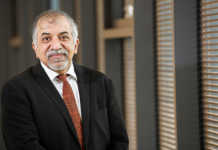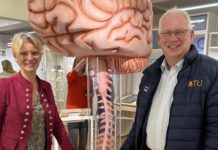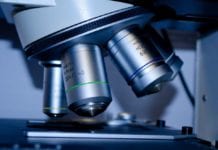A Galway researcher has been awarded funding to explore a new therapy for reducing the side effects of chemotherapy.
Professor Martin O’Halloran at University of Galway has received a European Research Council (ERC) Proof of Concept grant worth €150,000.
This is for his research work on NeuroProtect – a novel therapy to prevent peripheral neuropathy in patients undergoing chemotherapy.
Peripheral neuropathy is damage to the nerves outside of the brain and spinal cord, which can ead to weakness, numbness and pain, usually in the hands and feet which can cause significant disability and pain for cancer patients.
Speaking about the ERC grant for NeuroProtect, Professor O’Halloran said that it addresses a medical problem which is deeply significant to cancer patients.
“It builds on ever growing collaborations between engineering and medicine at the University, and we hope to have an impact in the clinic in the very near future.”

Proof of Concept grants are awarded to ERC grant holders as top-up funding to explore the commercial or innovation potential of the results of their ERC-funded research.
Professor O’Halloran is Techrete Professor of Medical Electronics, Executive Director of the University of Galway-Enterprise Ireland funded BioInnovate Ireland and Director of the Translational Medical Device Lab at the university’s College of Medicine, Nursing and Health Sciences.
This latest grant brings his total ERC awards to seven with a combined value of €4.25 million in funding since 2015, making him the joint-highest ERC awardee in Ireland.
Professor Jim Livesey, Vice-President Research and Innovation at University of Galway, said: “The record ERC awards for Professor O’Halloran are a striking recognition of the quality and level of research he and his teams are leading at University of Galway, as well as the potential for impact on people’s quality of life.”
“The ERC awards also demonstrate the role which our University plays regionally, nationally and internationally and its value in the medtech sector on a global stage.”











